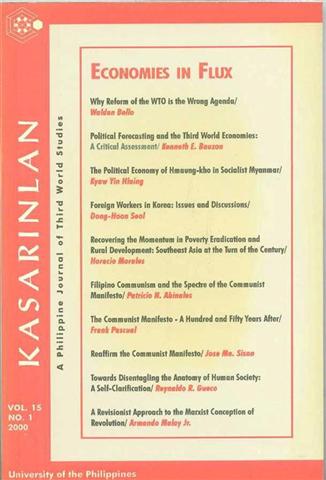Why Reform of the WTO is the Wrong Agenda
Abstract
The Seattle debacle has spawned questions about reforming the World Trade Organization (WTO). While the WTO may be experiencing a crisis of legitimacy, the author contends that pushing for its reform is the wrong agenda. Perhaps the superbody is simply beyond reform because it is fundamentally flawed. The WTO was conceived to protect the interests of the United States and is in no way helping the less industrialized countries to develop. The anti-development character of the WTO is manifested in the Agreement on Trade-Related Investment Measures (TRIMS) and Agreement on Trade-Related Intellectual Property Rights (TRIPS), among others. In making decisions that are of global effect the WTO takes the vote of only the United States, Japan, the European Union and Canada. An organization that is meant to institutionalize and legitimize inequality cannot be reformed. Instead of seeking changes that may inevitably strengthen the WTO, developing countries and international civil society must strive to radically reduce the power of the WTO and make it simply another international institution that can play by the rules.
Published
2009-07-28
How to Cite
BELLO, Walden.
Why Reform of the WTO is the Wrong Agenda.
Kasarinlan: Philippine Journal of Third World Studies, [S.l.], v. 15, n. 1, july 2009.
ISSN 2012-080X.
Available at: <https://journals.upd.edu.ph/index.php/kasarinlan/article/view/1426>. Date accessed: 25 aug. 2025.
Section
Features
By submitting a manuscript, the authors agree that the exclusive rights to reproduce and distribute the article have been given to the Third World Studies Center.



